|
Garlic lowers LDL levels | Metastudy
According to a meta-analysis published twelve years ago, garlic improves HDL and LDL levels. The same authors showed in another meta-study that garlic also lowers blood pressure. It's no wonder that epidemiological research shows that you live three years longer if you regularly consume garlic.
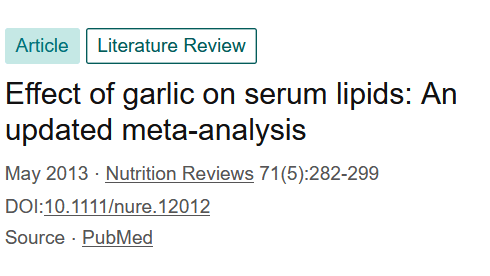
Study
Researchers at the University of Adelaide, Australia, published a meta-analysis in 2013 in which they aggregated and reanalyzed the results of 39 trials. In the trials, participants received garlic, garlic oil, or garlic extract supplements, and researchers determined the effect on cholesterol levels.
In 29 of the 39 trials, researchers used garlic powder supplements, usually for a period of 8-12 weeks and in doses of 600-900 milligrams per day.
The participants took their supplements 2-3 times per day.
Results
Garlic supplementation increased the concentration of 'good cholesterol' HDL by 1.5 milligrams per deciliter. This is positive, but an average increase of one and a half points is so modest that it has little to no effect on the risk of a heart attack.
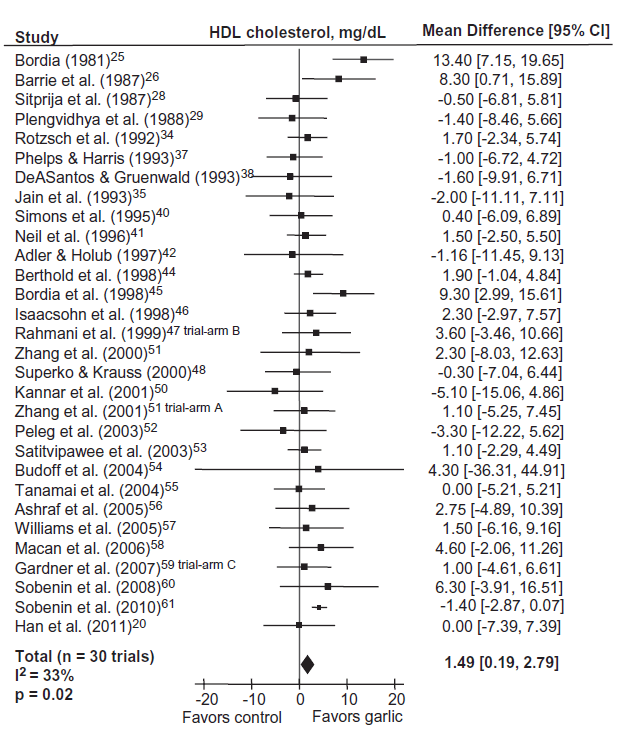
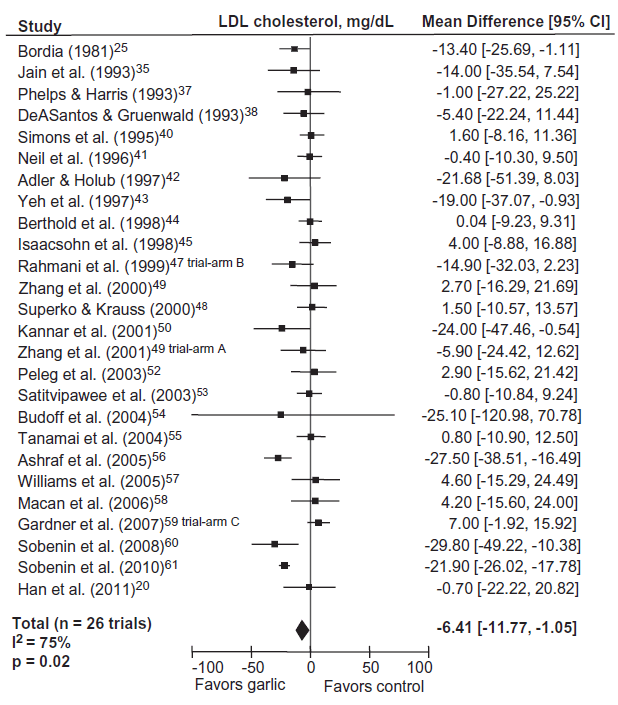
More relevant is garlic's effect on LDL levels. According to the meta-analysis, the concentration of 'bad cholesterol' LDL decreases by an average of 6.4 milligrams per deciliter. This is still modest, but significant enough to be clinically relevant - and to reduce the risk of heart attacks, strokes, and other cardiovascular incidents. This reduction ranges from 4-9 percent.
Aged garlic, in particular, proved effective. Aged garlic is fermented garlic. It contains primarily S-allylcysteine.
The table below shows more details. Click on it for a larger version.
Relative reduction = relative reduction in the risk of cardiovascular events.
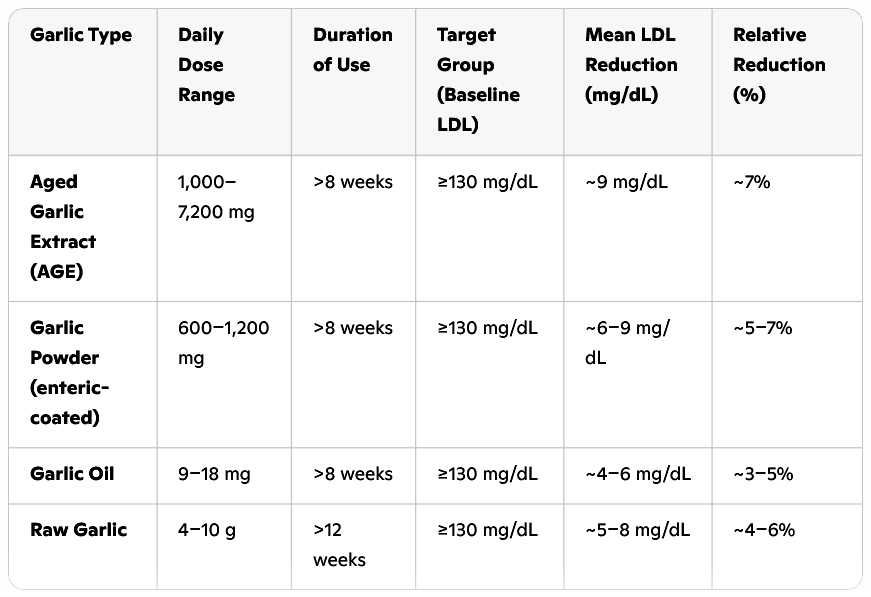
It's noteworthy, by the way, that unsponsored studies reported stronger positive effects than industry-funded studies. You would expect the exact opposite. Incidentally, the reliability of the studies, as far as the researchers could assess, was perfectly reasonable.
Active substances
Garlic contains alliin, a sulfur-containing compound. When you crush, press, or chop fresh garlic, the enzyme alliinase is released. This enzyme converts alliin into allicin. And this substance inhibits the production of the enzyme HMG-CoA reductase [spatial formula below] in the body. This enzyme plays a key role in cholesterol biosynthesis in the body.
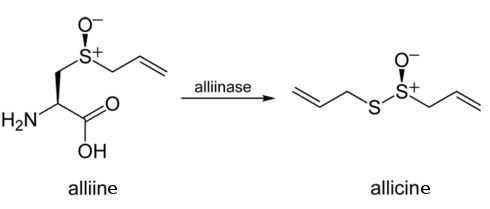
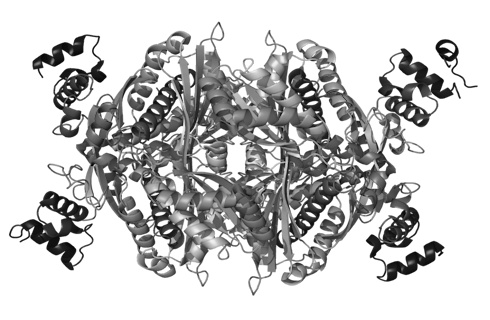
Garlic also contains other sulfur-containing substances that may inhibit cholesterol production. They work differently than allicin—and their effect is also less potent.
S-allylcysteine likely reduces the phosphorylation of HMG-CoA reductase. This reduces the enzyme's ability to function effectively.
Diallylsulfides, a group of compounds in garlic formed through further conversion of allicin, inhibit the action of HMG-CoA reductase by binding to the enzyme, thus reducing its effectiveness.
Garlic's effect on LDL is less pronounced than that of statins. Statin administration can lead to a 5-7-fold greater reduction in LDL levels. However, statins can have serious side effects.
Moreover, garlic protects the heart and blood vessels not only by lowering LDL levels. For example, garlic also makes the blood vessels more flexible - which lowers blood pressure - and inhibits the formation of blood clots and plaques.
Source:
Nutr Rev. 2013 May;71(5):282-99.
More:
Regular garlic vs. wild garlic | Which variety protects heart and blood vessels better? 09.07.2025
This is the effect of garlic on your blood pressure 14.09.2024
Garlic makes running healthier 14.10.2015
Archives:
Cardiovascular Health
Garlic
 |
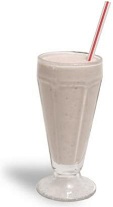 |
 |
|
This is the effect of plain black tea on your cholesterol
Everyday black tea reduces the concentration of the 'bad cholesterol' LDL in your blood by 4 points. If your cholesterol level is too high, the effect is twice as strong.
|
Lower your LDL, supplement with whey
While the media keeps shouting louder and louder about how dangerous supplements are, one study after another is published that shows exactly the opposite. Even the most common supplements appear to have a variety of positive and unexpected effects on health.
|
Eat 2 apples every day, improve your cholesterol
Your cholesterol level isn't alarmingly bad, but it's not really healthy either. In that case, you may well respond to the addition of two apples to your daily diet.
|
|
|









